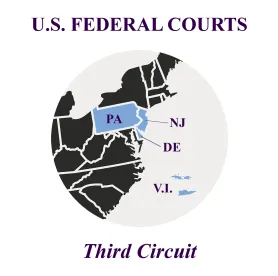A Third Circuit panel recently affirmed a Pennsylvania district court decision in favor of defendant Innovative Designs (“IDI”) in an advertising challenge by the FTC. We previously blogged about the district court decision, which found the FTC failed to present any credible expert testimony to support its claims. On appeal, the Third Circuit panel affirmed, finding the FTC failed to show that IDI’s advertising claims were not scientifically supported. FTC v. Innovative Designs (3d Cir. July 22, 2021).
IDI manufactures and sells Insultex House Wrap, a weather-resistant barrier used in building construction. The insulation power of house wrap products is determined through the product’s R-value, a measure of the product’s ability to restrict the flow of heat. The higher the R-value, the higher the product’s insulation power. IDI advertised that Insultex had an R-value of either R-3 or R-6. The FTC alleged IDI overstated the R-value of its products because “(1) IDI did not use the standard ASTM C518 test to yield its purported R-values, and standard ASTM C518 testing did not yield IDI’s claimed results. Instead of the standard ASTM C518 test, the FTC alleged IDI used a modified ASTM test to yield the advertised R-values.
The Court found that to prevail on a lack of substantiation theory, the FTC must identify the evidence that the advertiser should have to support its claim in the relevant scientific community, and then prove that the substantiation the advertiser claims to possess would not satisfy the relevant scientific community. Here, the Court found the FTC’s arguments failed because the FTC did not establish that the modified ASTM test did not comply with the standard ASTM C518 testing; the Court noted ASTM C518 testing explicitly contemplates that variations of the standard method may be acceptably used. In addition, the FTC failed to prove that the modified test would not satisfy the relevant scientific community, and failed to show “through expert testimony or otherwise” that the modified test yielded inaccurate results. The Court clarified that the burden fell on the FTC to prove that the testing would not be acceptable to the relevant scientific community, not on IDI to prove that it would.
Like the district court decision, the Third Circuit’s opinion reinforces the importance of scientific evidence, including through a properly vetted expert witness, where the advertising claims at issue are highly technical, and where the FTC’s theory of falsity hinges on a lack of substantiation.





 />i
/>i
